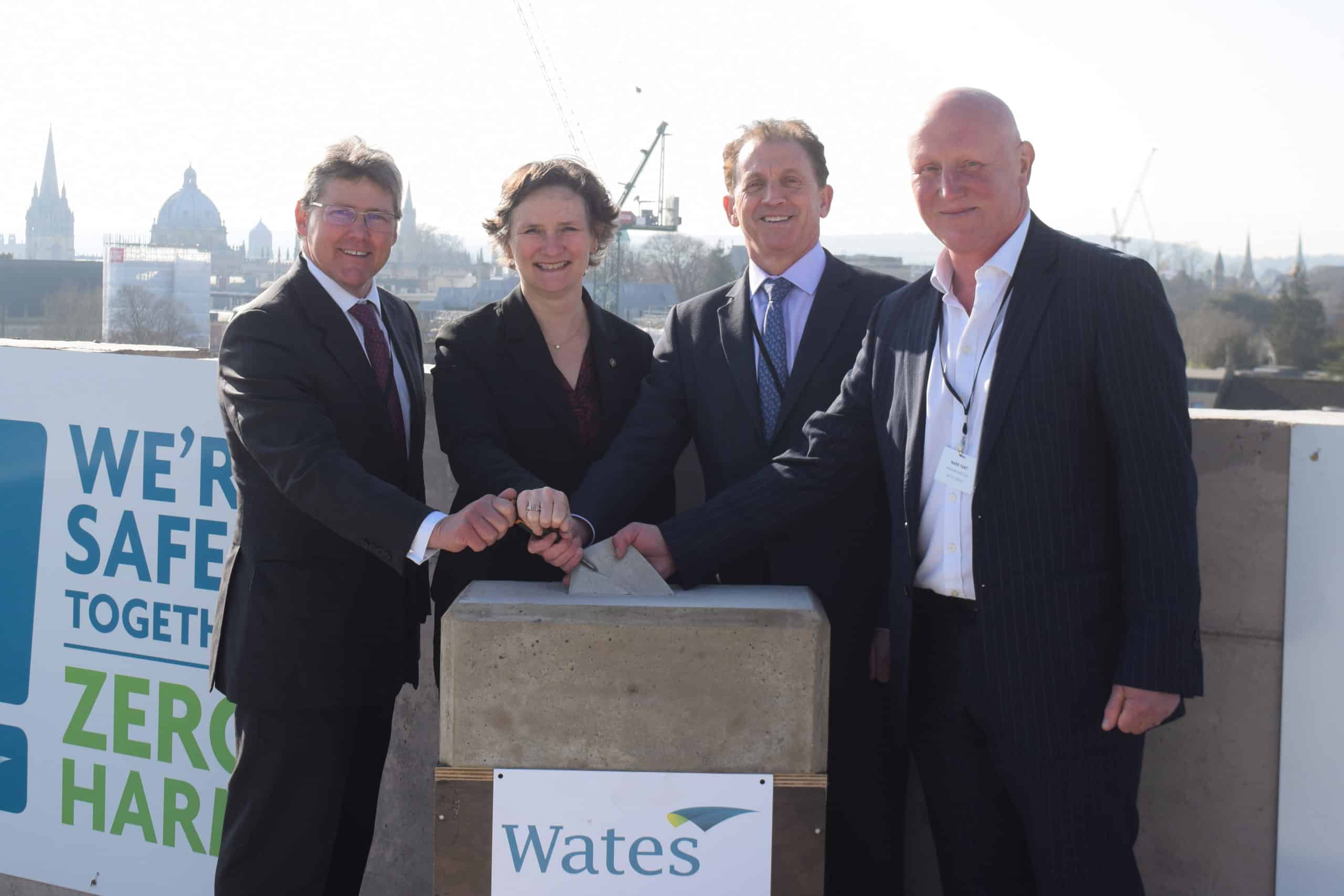Life and Mind Building construction tops out
Wednesday 15th Feb 2023, 4.22pm

This city-centre construction project is the first launched under the joint venture that led to the formation of Oxford University Development (OUD).
The Life and Mind Building will deliver circa 268,000 square feet of cutting-edge research, teaching and innovation space, and is part of 400,000 square feet of science-focused space already under construction by OUD. It will house students, researchers and support staff from the departments of Biology and Experimental Psychology, significantly improving the way these disciplines are delivered in Oxford.
The building is situated at the gateway to Oxford’s Science Area and replaces the Tinbergen Building which closed in February 2017. Set across two wings, it features laboratory and office accommodation, with a central atrium and lower floor teaching centre. The design will provide maximal flexibility and foster new collaboration between the two departments.
As Professor Matthew Rushworth, Head of Department for Experimental Psychology, says:
‘In the Department of Experimental Psychology we are really looking forward to the time when we might all come together as a department under one roof. Having a departmental home and a place for our new laboratories, patient testing rooms, and lecture theatres is critical for our staff and our students.
‘EP’s focus is on understanding the mind and behaviour. We do this by looking at everything from the patterns of activity in brain cells to the patterns of behaviour in groups of people. Our research has an impact in many areas such as helping children with language and reading and developing and improving access to therapies for anxiety.’
Professor Mark Fricker, Head of Department for Biology, adds:
‘This milestone marks an exciting time, because we will now begin to see this building come to life over the coming months, as it is kitted out with state-of-the-art facilities that will help to support our teaching and research.
‘The Department of Biology focuses on tackling some of the world’s greatest challenges, from food security to pandemic prevention to climate change and biodiversity loss. The Life and Mind building will help to ensure those objectives are achieved, by supporting cross-collaborations and providing the departments it houses with the ability to grow their capacity.’
The Life and Mind project, at its halfway point, is being delivered in collaboration with main contractor Wates, designer NBBJ and project managers Arup.
The topping out ceremony was attended by leaders from the project’s major stakeholders.
Legal & General partnered with the University of Oxford in June 2019, forming OUD in order to provide thousands of new homes for staff and students, incubator space for research and businesses and academic facilities such as the Life and Mind Building.
David Prout, Pro-Vice Chancellor (Planning and Resources) at the University of Oxford, said:
‘I am delighted that OUD and Wates have made such rapid progress with the Life and Mind Building and that the University’s joint venture with Legal & General continues to go from strength to strength.’
Anna Strongman, CEO of OUD, said:
‘To reach this point, not only on the Life and Mind Building, but across a number of projects in such a short timescale is testament to the scale of OUD’s ambition. We are focused on delivering socially sustainable developments for all in Oxford and also aim to set a new bar for university-backed development.’
Mike Coplowe, Senior Development Manager, Legal & General added:
‘Universities are a key driver for the growth of cities, acting as a magnet for talent and incubator of growth and innovation. They have an integral role in shifting the dial for future success. Great universities also need an economic, physical and digital infrastructure to create an ecosystem to attract people and businesses.
‘Topping out at the Life and Mind Building is a significant milestone for our partnership with the University of Oxford. Legal & General is committed to investing in the UK education and life sciences sector, and we are extremely proud of what we have achieved so far through OUD.’

